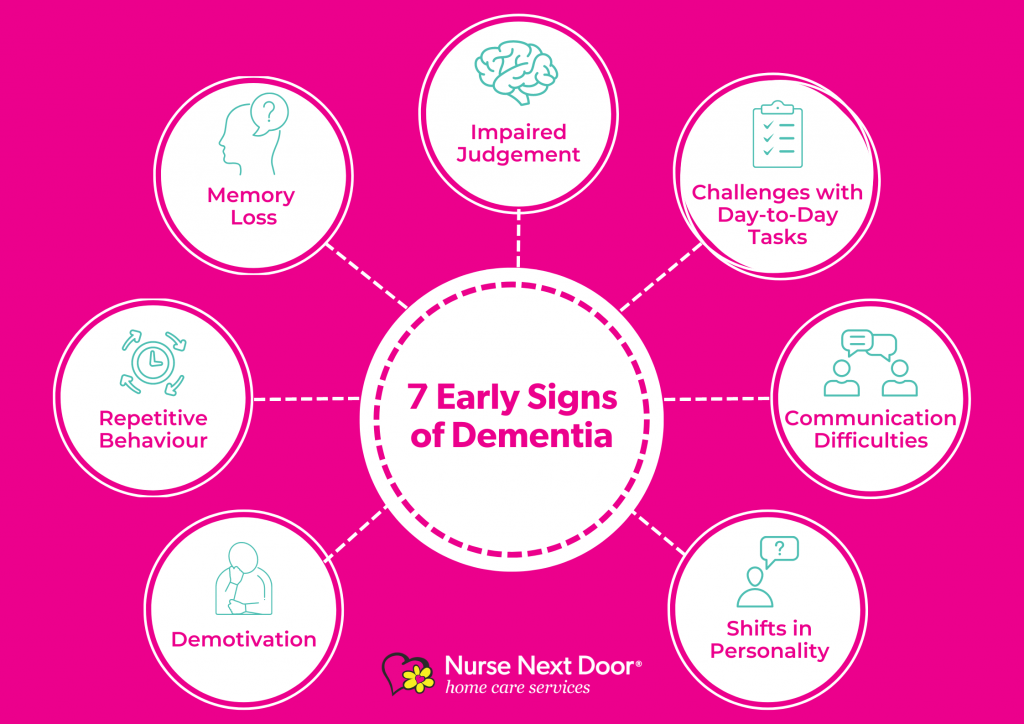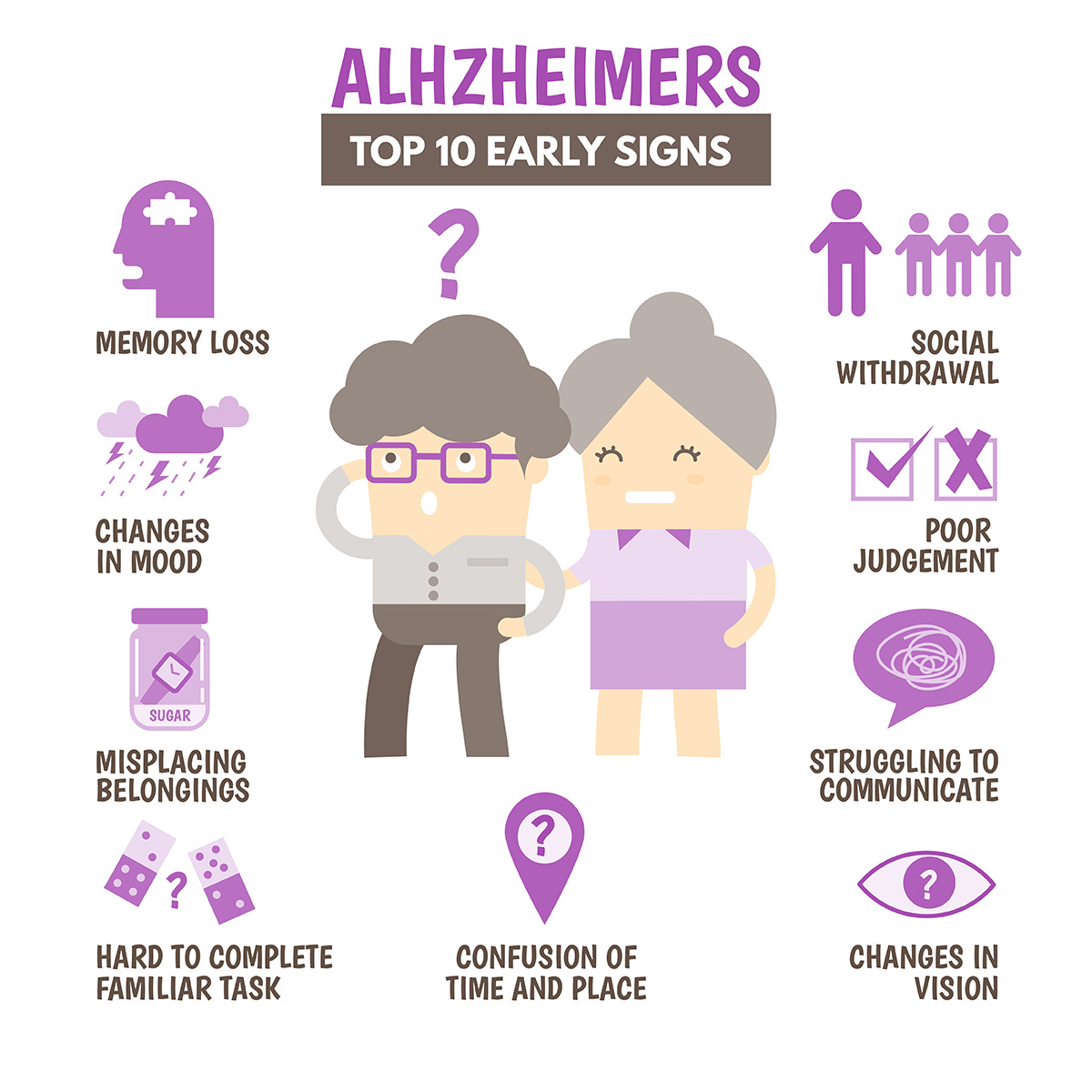Key Differences Between Vascular Dementia and Alzheimer's Disease
Key Differences Between Vascular Dementia and Alzheimer's Disease
Blog Article
Understanding the Effect of Dementia on Every Day Life and Caregiving
Dementia impacts everyday life in extensive methods, influencing not simply those identified however additionally their caretakers. As cognitive decrease advances, you might discover modifications in interaction and regular that difficulty both parties.
The Stages of Dementia and Their Impacts on Life
As you browse the trip of dementia, comprehending its stages can substantially influence exactly how you manage everyday life. Dementia commonly advances with 3 primary stages: early, center, and late.
Throughout the center phase, you'll experience extra visible cognitive decrease. Daily tasks might come to be tough, and keeping your independence might need changes. Using suggestions and streamlining your atmosphere can aid.
In the late stage, individuals commonly require significant help with daily tasks. Preparation for care comes to be necessary, concentrating on comfort and high quality of life. By recognizing these stages, you're better outfitted to react proactively, ensuring you or your loved one can browse the challenges with dignity and poise.

Adjustments in Interaction and Social Interaction
Just how do changes in interaction impact your daily communications as mental deterioration progresses? As mental deterioration advancements, you could see that straightforward discussions end up being tough. Words may escape you, or you may have a hard time to find the best phrases. This can cause aggravation for both you and your liked ones. Nonverbal cues, like gestures or faces, come to be significantly important.
You might find it less complicated to attach via these means rather than depending exclusively on talked language. Listening abilities can additionally alter; you may locate it harder to follow conversations or remember what was just said (Early Onset Dementia). This can bring about misconceptions or sensations of isolation
Urging patience and creating a supportive atmosphere can help. Involving in activities that foster link, like music or art, can enhance social interactions. Remember, keeping partnerships is still possible; it's nearly adjusting to brand-new means of communicating.
Effect On Daily Routines and Activities
While maneuvering everyday routines, you'll likely discover that jobs you as soon as finished effortlessly become a lot more difficult as mental deterioration progresses. Basic tasks like food preparation, dressing, or even showering may need even more effort and time. You may find yourself forgetting steps in acquainted regimens or having a hard time to recall where you put items. This can bring about disappointment not just for you, but also for those around you.
Preparation your day can really feel frustrating, making it more challenging to adhere to a routine. You may require pointers for consultations or to take medicines. Adjusting your atmosphere can help; as an example, labeling items or utilizing lists can simplify jobs. Engaging in recurring, organized tasks can likewise offer comfort and a sense of accomplishment. Bear in mind, it's fine to ask for aid. Bordering yourself with helpful pals or household can make handling these adjustments a bit much easier.
Behavior and emotional Obstacles
Steering through everyday regimens can produce not just functional challenges, but additionally psychological and behavioral ones. You might see changes in mood, such as increased anxiousness or stress, which can come from complication or trouble in finishing tasks. As you browse these minutes, it is essential to recognize that your liked one might reveal their sensations with habits like anxiety or withdrawal.
These emotional reactions can be unpredictable and might develop without caution, leaving you both feeling bewildered. You might locate that familiar environments or routines can help in reducing anxiousness, but maintaining patience comes to be considerable. It is important to validate their feelings, also if you do not totally recognize them.
The Duty of Caregivers in Sustaining Individuals With Dementia
As a caretaker, you play a vital duty in supplying psychological support for individuals with dementia. Developing day-to-day treatment routines can create a feeling of stability and convenience, assisting to reduce their anxiousness. By comprehending their demands and utilizing reliable approaches, you can substantially boost their lifestyle.
Emotional Assistance Approaches
When caring for someone with dementia, understanding the psychological landscape is important for providing reliable assistance. You'll commonly find that persistence and compassion go a long method. Confirm their feelings; if they express confusion or frustration, acknowledge it without dismissing their emotions. Easy gestures, like holding their hand or keeping eye get in touch with, can produce a complacency. Attempt to engage in tasks that they enjoy, as this can spark happiness and link. Remember to communicate plainly and gradually, making use of a tranquil tone. Encourage expression through music or art, which can work as a powerful outlet. Ultimately, do not forget to take treatment of your own psychological requirements; seeking assistance for on your own can improve your capability to look after them.
Daily Care Routines
Developing everyday care routines is necessary for giving security and convenience to people with mental deterioration, as these regimens can aid minimize confusion and anxiety. You click here now can start by detailing a constant timetable for meals, tasks, and remainder. This predictability assists your enjoyed one really feel extra safe and secure and engaged.
Incorporate familiar jobs, like folding laundry or watering plants, which can evoke positive memories and foster a feeling of achievement. Usage aesthetic signs, such as lists or calendars, to assist them via the day.
Be versatile, though; adjust routines as needed based upon their state of mind or energy levels. Vascular Dementia. Bear in mind, your persistence and understanding are essential in maneuvering their changing needs, ensuring they really feel sustained and valued throughout their everyday life
Developing a Safe and Comfortable Living Atmosphere
Creating a comfy and safe living setting is essential for people with mental deterioration. You'll intend to make home security modifications that decrease threats and ensure familiarity to offer a sense of comfort. By concentrating on these elements, you can help produce a space that supports both safety and security and wellness.
Home Safety And Security Alterations
As you browse the difficulties of mental deterioration, making home security modifications can considerably improve convenience and protection. Begin by getting rid of tripping hazards like rugs and mess, assuring sidewalks are clear. Install grab bars in shower rooms and non-slip floor coverings in the shower to avoid drops. Consider utilizing brighter illumination and night lights to enhance visibility, particularly during nighttime. Label important locations, such as the washroom and kitchen, with clear signs to aid with positioning. Protect any type of sharp things or toxic substances unreachable. Furthermore, analyze your home's locks and alarm systems to validate they're user-friendly and offer comfort. These alterations not only advertise security however additionally urge independence, permitting your loved one to feel even more secure in their atmosphere.
Convenience and Familiarity
After making certain a risk-free setting with necessary adjustments, cultivating comfort and experience is crucial for individuals with dementia. Beginning by personalizing their room. Use familiar shades, decorations, and photos that stimulate pleased memories. A favored blanket or chair can supply a complacency. Keep a consistent regular to aid them feel based and lower stress and anxiety. Easy, acquainted dishes can likewise develop a comforting environment. Maintain paths clutter-free and clear to stay clear of confusion. Include soft illumination, as bright lights can be disorienting. Take into consideration adding comforting aromas, like lavender, to advertise relaxation. Involving in acquainted tasks, such as listening to songs or great site gardening, can improve their sense of belonging, making their living environment a real shelter.
Techniques for Reliable Caregiving and Support
While navigating the obstacles of mental deterioration care can feel overwhelming, executing effective strategies can substantially boost both the caretaker's and the person's everyday experience. Begin by establishing a routine; predictability helps lower anxiousness for both you and your loved one. Use clear, basic interaction-- direct questions and brief sentences can protect against complication.

Don't neglect to my company deal with on your own; routine breaks and get in touch with support groups. Sharing experiences with others in similar circumstances can give useful understandings and emotional alleviation.
Last but not least, stay person and versatile. Mental deterioration can bring unpredictable adjustments, so adjusting your method is important. By using these techniques, you can cultivate an extra positive setting that profits both you and your liked one.
Regularly Asked Concerns

What Are the Different Kinds Of Mental Deterioration?
You'll discover numerous kinds of dementia, including Alzheimer's, vascular dementia, Lewy body dementia, and frontotemporal dementia. Each type impacts memory and cognitive function in different ways, so understanding the distinctions is crucial for proper diagnosis and care.
Exactly How Can I Assist Somebody With Early-Stage Dementia?
You can help someone with early-stage dementia by holding your horses, supplying support, and motivating them to take part in tasks they appreciate. Maintaining routines consistent and preserving open communication can likewise make a significant difference in their everyday life.
Exist Financial Resources Available for Dementia Care?
Yes, there are funds readily available for mental deterioration treatment. You can explore entitlement program programs, not-for-profit companies, and insurance policy alternatives. It's also important to seek advice from local firms for particular resources tailored to your circumstance.
What Lawful Factors To Consider Should Caregivers Understand?
As a caretaker, you must take into consideration power of lawyer, medical care proxies, and guardianship regulations. It's necessary to understand the lawful civil liberties and duties you hold, ensuring your loved one receives appropriate treatment and protection.
Just How Can I Manage Caretaker Stress And Anxiety?
You can manage caretaker stress and anxiety by focusing on self-care, seeking support from groups or friends, establishing realistic assumptions, taking breaks, and practicing leisure techniques. Keep in mind, your well-being matters simply as much as the individual you're caring for.
Recognizing the Impact of Dementia on Daily Life and Caregiving.
As you browse the journey of dementia, understanding its stages can significantly impact exactly how you take care of daily life.While steering daily routines, you'll likely observe that jobs you once completed effortlessly ended up being a lot more challenging as mental deterioration progresses.Establishing everyday care regimens is crucial for providing security and convenience to people with mental deterioration, as these routines can help lower confusion and stress and anxiety.While steering the obstacles of mental deterioration care can really feel frustrating, applying reliable methods can considerably boost both the caregiver's and the patient's day-to-day experience.
Report this page